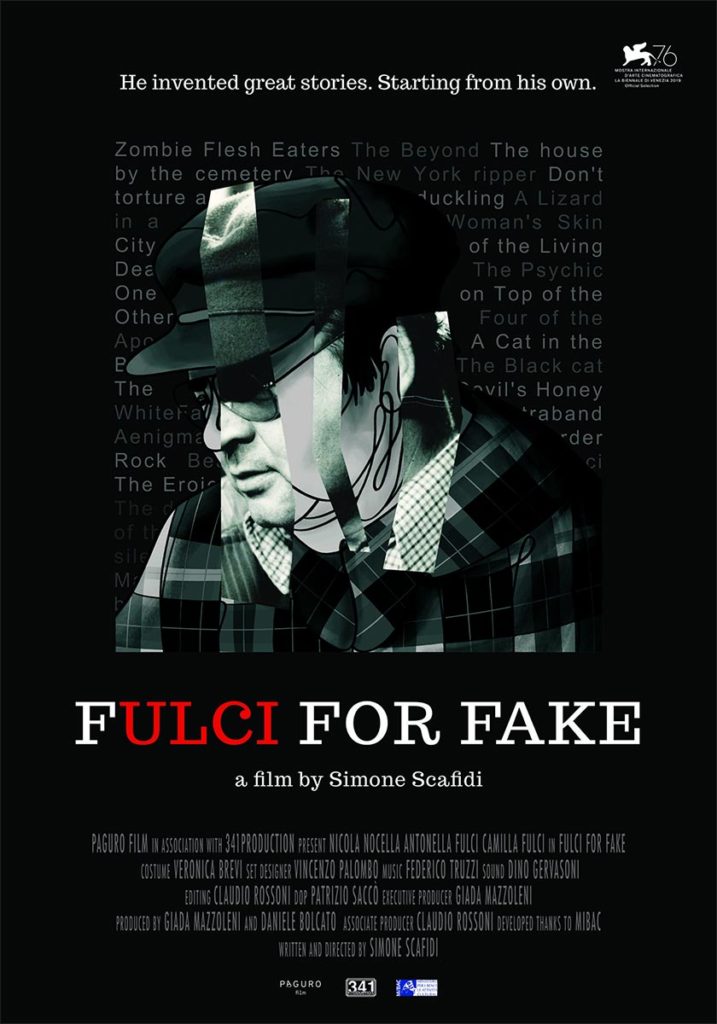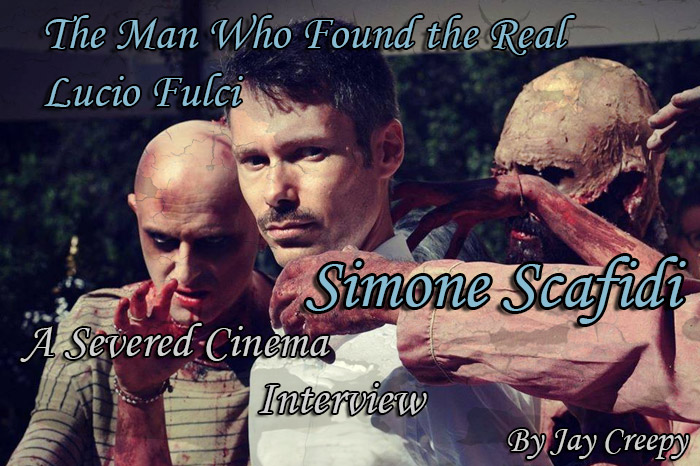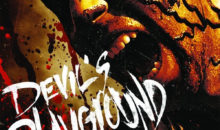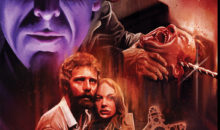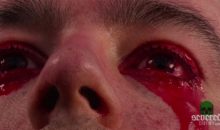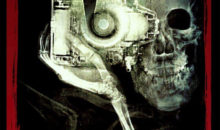Fulci for Fake Review!
Lucio Fulci was a huge part of my late childhood and then my early teenhood. Zombie Flesh Eaters has always been my number one film of all time, and as a kid I watched such lovely servings of meat like The Beyond, The Black Cat, and City of the Living Dead. As I grew older, I sought out and claimed as many of his later films and earlier works as possible. In short, I became an obsessive fan. No other director rises above Lucio Fulci in my eyes. I am a lover of Italian cinema, and he is the incredible man who paved the way for my adventures.
“From Zombie, to The New York Ripper, a handful of films over three or four years, in my opinion are the centre and the heart of Fulci’s cinema. Somehow they are the beginning of his story and the end to…” thus says Davide Pulici of Nocturno Cinema, early on in Fulci for Fake, this jaw dropping gift from director Simone Scafidi, who was interviewed recently for Severed Cinema (read interview with Simone Scafidi here).
It’s true that before Zombie, there were a few gems and classics, but Lucio Fulci’s vast output varied in quality, and after The New York Ripper when he was slowly pushed out of the industry he adored so much, he tried to keep going, but against weak budgets, his ideas crumbled. Seven films in those years (I would personally include the absolutely manic and unpredictable, Manhattan Baby in the line-up, but I am a rarity it seems) do seem to show the real Lucio, a man who changed the face of horror in many ways.
Fulci for Fake is about an actor (Nicola Nocella) who is preparing to play Lucio Fulci in an upcoming biopic. The director has advised Nicola to watch some films, and to research the man by speaking to many people who knew him, to find out who the real Lucio Fulci was. The Fulci he is to play is the older man, weary and tired, spat upon by the industry but still making his films.
Nicola first meets with the supposed elusive, Camilla, youngest daughter and the one once upon a time presumed dead. She speaks fondly of her father, the closeness between them is instrumental throughout Fulci for Fake, from the beginning to A Cat in the Brain (see review here). She shares many stories. Camilla does say that in every film there’s a piece of her family’s history which the viewers would never be able to construct together. A quickly signposted pointer is when it’s quoted from a source that you could remove 35 of his films and still have the best. This is basically aimed at his early works of comedy. Thus, we arrive at a really eye-catching segment on his times throughout the ‘50s and ‘60s. Lucio was a complicated intellectual who slipped perfectly into those times and that subject matter. “He was a funny communist.”
And this, ladies and gentlemen is chapter one in what can be described as a well-planned out, brilliantly executed piece of filmmaking. Focusing on what is generally a criminally ignored sector of Lucio’s remarkable and diverse CV, using amazing photographs and such, and then we hear from Italian legend, Sergio Salvati, cinematographer to many of Fulci’s films and loads of funky gems around those decades. He discusses how Lucio was named as one the only young directors who was the whole package, so to speak.
“If Fulci had died in 1966, with only 15 films under his belt, more than all the films Kubrick made in his lifetime,” says Nicola, “No one would remember him. Perhaps because the pain hadn’t come yet… pain, with all it stirs… with all the cinema it can create…”
The pain comes in the form of his wife’s suicide. We see old films of the two of them together, and as his long time assistant says, Lucio never recovered, always haunted by guilt.
Pausing to hover over A Cat in the Brain, which is to form the beginning of the planned biopic, we then return to his life and in very rich and lit moments. Then through more interviews we build up the side of his love for women, then his interest in gore…
I’m not going to reveal much more, because this deserves to be seen and review itself for you. So many aspects are brought to us, warts and all. Nothing is simply pushed quickly past the lens, we see and hear so much of value. Simone has structured a nourishing gripping account of Lucio Fulci and his life, his thoughts, and of those around him.
I feel Davide Pulici misses the point in some parts. For instance, his opinion of Don’t Torture a Duckling, he sees discussion of Fulci’s view of sin, etcetera, as boring and would rather compare the infamous chain sequence to that in The Beyond. Try not to forget that, as seen in the earlier parts of the movie, Fulci was an intellectual filmmaker, so we cannot dismiss such things as “boring.” That is just saying that Lucio is a gore and pain guy. No, not the case. Many watch his films just for blood. I see beautiful angles, I see the locations used in some, I see his little messages dotted around, because I am a fan of Lucio Fulci, and it isn’t boring! From that moment, I found myself dismissing a lot of his discussions simply as a gorehound point of view, hollow and somehow sad. Two exceptions come when he disputes those who say what could have been achieved with masses of money. As he rightfully says, that isn’t the point. Those films were made exactly as planned. Oh, and his obvious love for Zombie/ a.k.a. Zombie Flesh Eaters.
Fulci for Fake builds up the true Lucio, a man who suffered, but who, for a while, did his own thing and became infamous. We hear from his family who he loved, his close friends, work colleagues, all accompanied by photos and home videos. We see minimum film clips, which is beautifully refreshing. In his private life, as stated, he was messy, but at work, very tidy, knowing every scene each camera positioning way before the set up began. A nice minute comes when Fabio Frizzi explains the genesis of The Beyond’s “out of tune” piano theme.
As marvellous as the make-up is and it hides away the face of Nicola, it doesn’t really look like Fulci that much, but I’m not going to gripe.
He loved the horror genre, probably because of the pain he felt inside, as stated by a close friend of his, yet this man was human. A complex human. We learn of his funny side, his cruel side, and his emotional side. As we gear towards the finale, we feel it coming due to the mass of emotions experienced. Like Oliver Reed and Gladiator, when we reach The Wax Mask, and the film that Lucio figured would be his huge comeback vehicle… the end came of course. At this point, Antonella Fulci arrives and gives a few polar opposite views than what Camilla has been saying.
Altogether I personally don’t think there’s ever been a film so skilled and equipped to show the soul of a man in pieces to be placed together like Fulci for Fake. And if anyone ever deserved this honourable work, it is Lucio, one of the most beloved horror directors of all time.
Directed by: Simone Scafidi |Written by: Simone Scafidi |Produced by: Daniele Bolcato, Giada Mazzoleni | Cinematography by: Patrizio Sacco | Editing by: Claudio Rossoni | Special Effects by: Giadi Rusmini | Music by: Federico Truzzi | Cast: Nicola Nocella, Lucio Fulci (archive material), Camilla Fulci, Davide Pulici, Michele Soavi, Fabio Frizzi, Antonella Fulci, Sergio Salvati | Year: 2019 | Country: Italy | Language: Italian (English Subtitles) | Color: Color | Runtime: 1h 32min
Studio: Paguro Film
Distributor: Severin Films
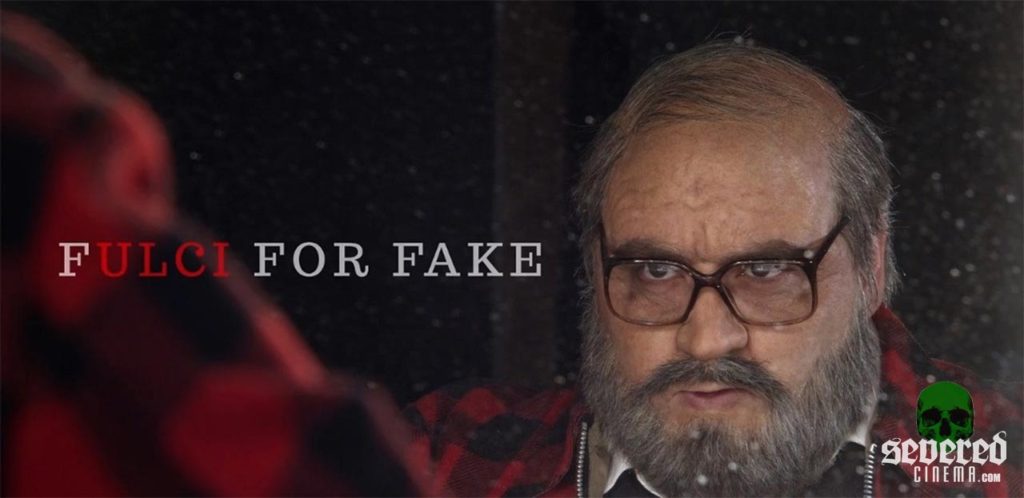
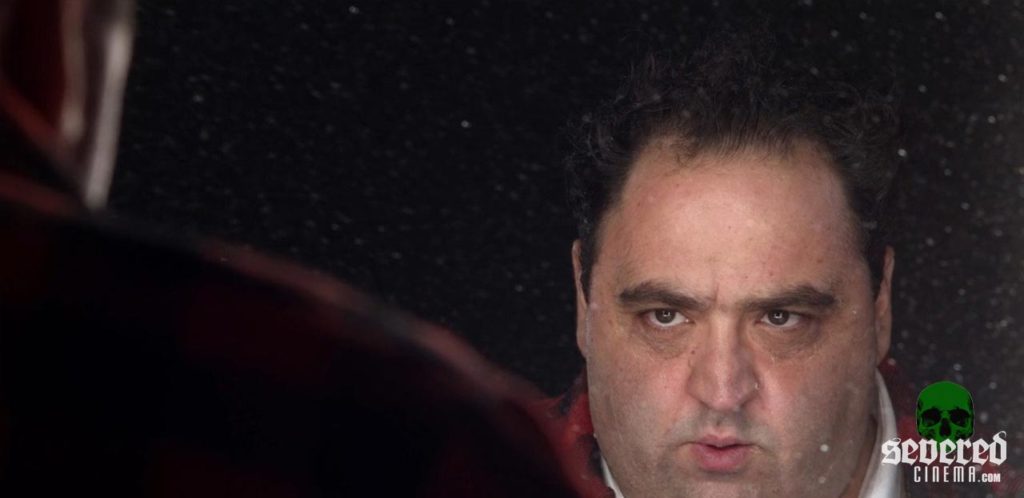
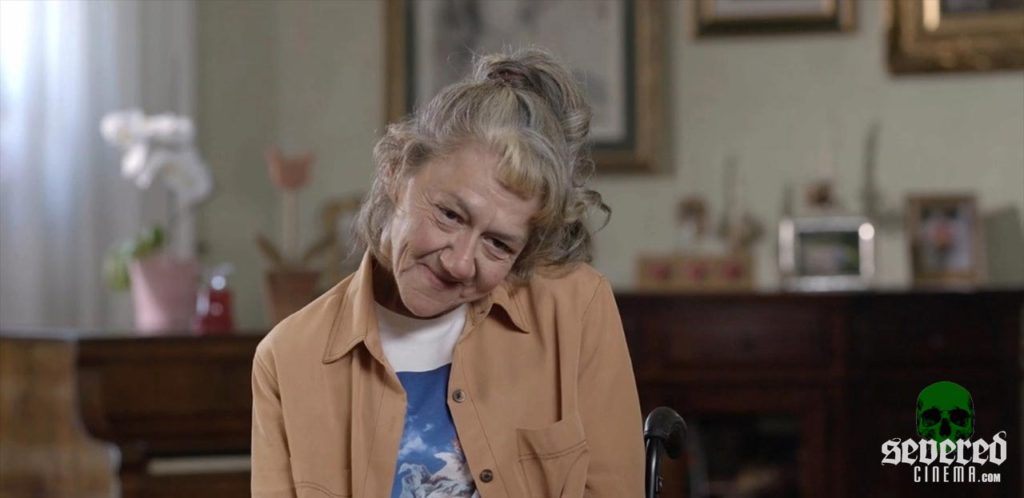
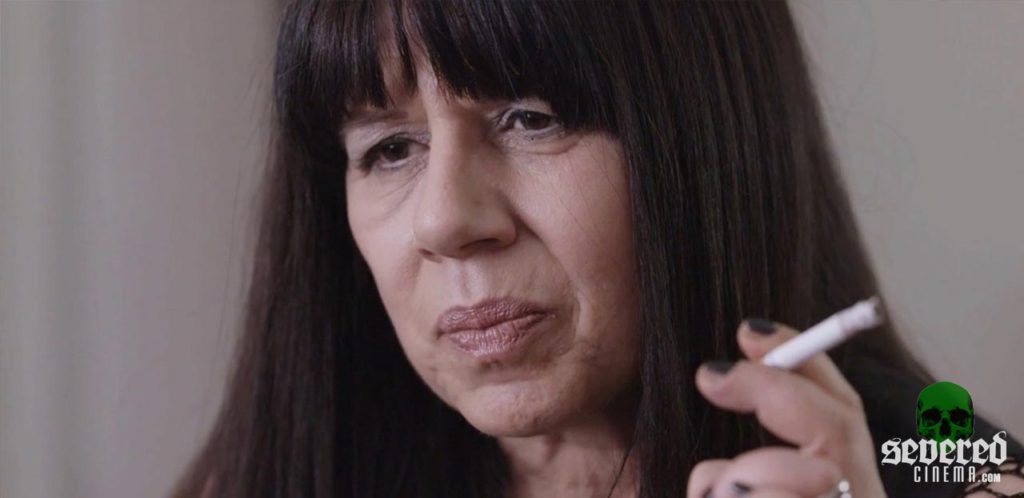
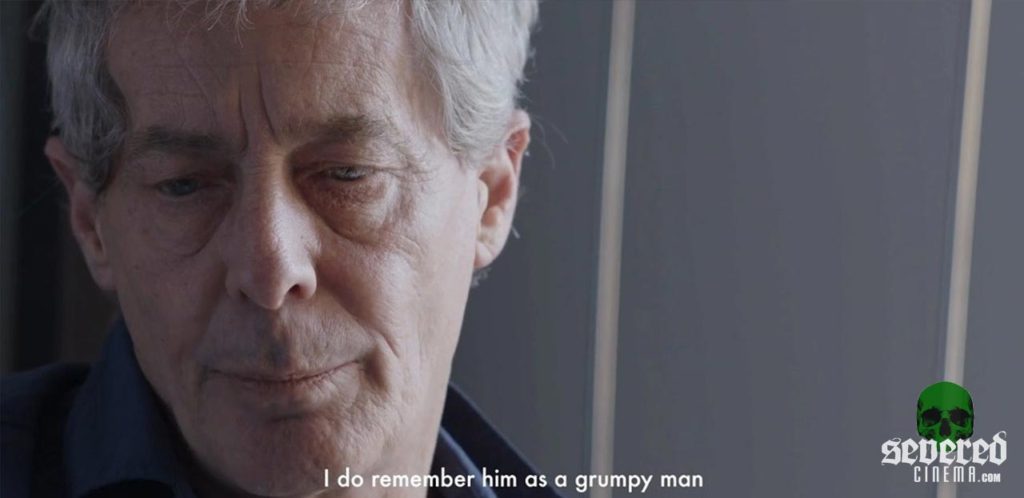
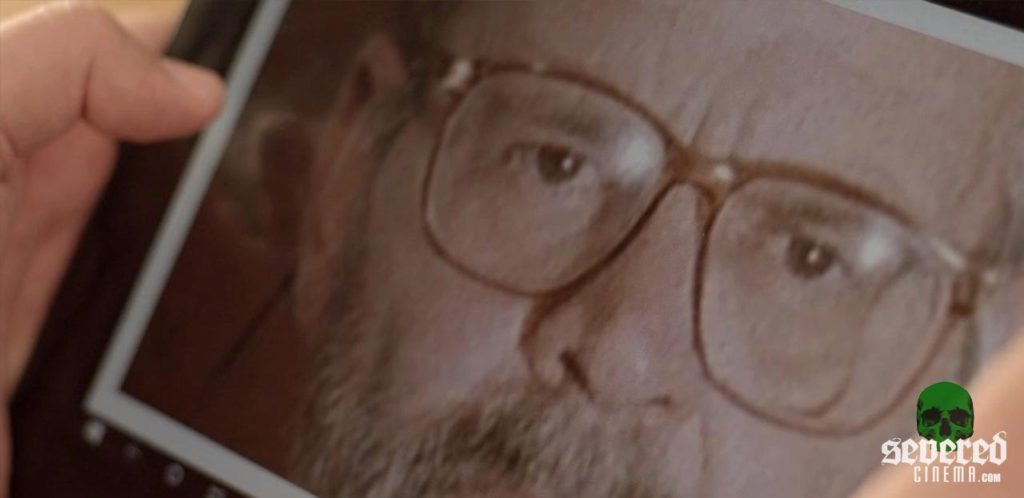
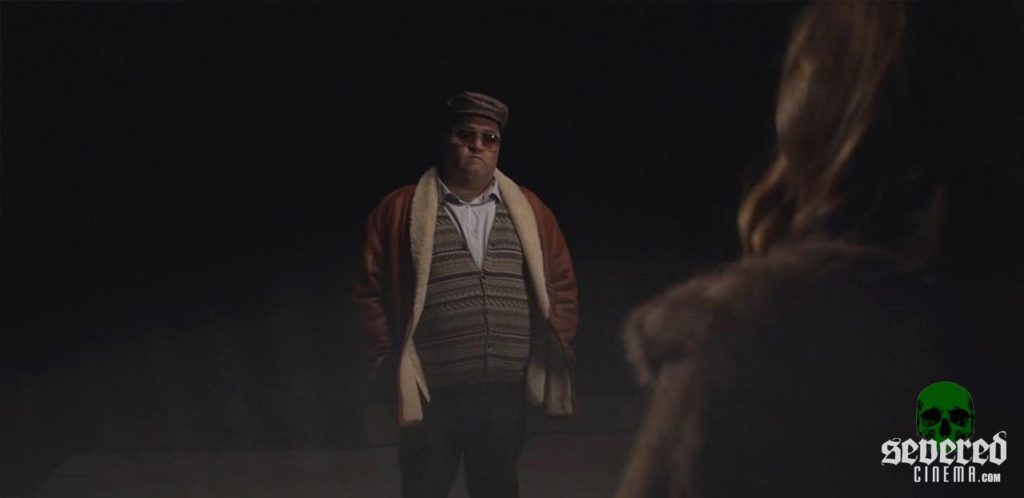
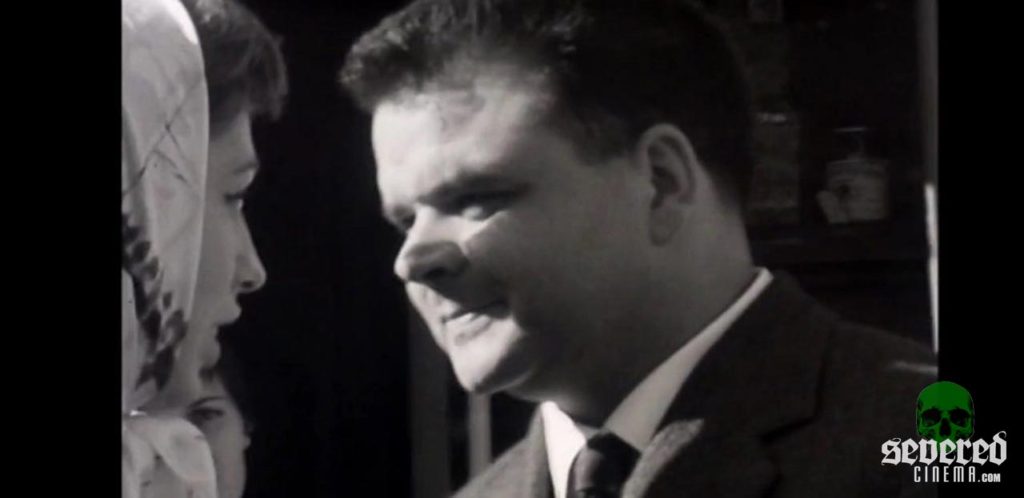
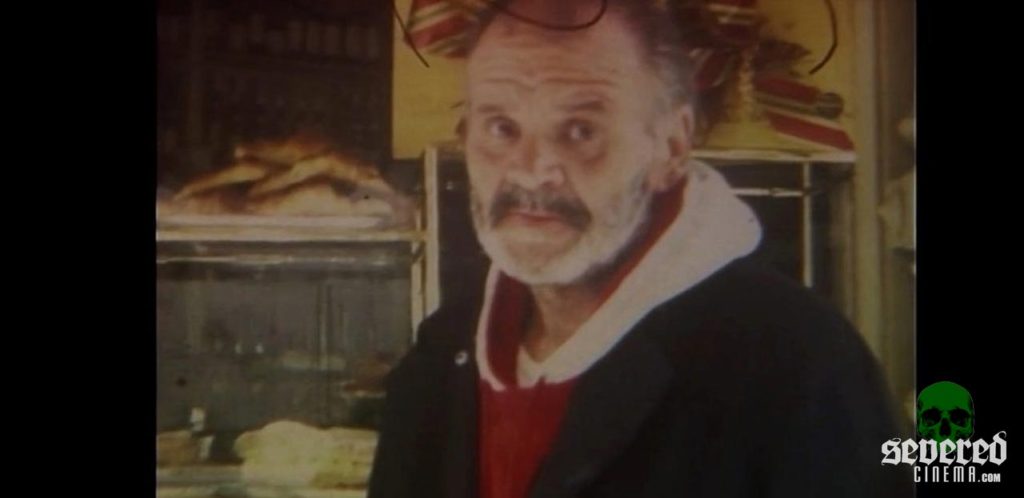
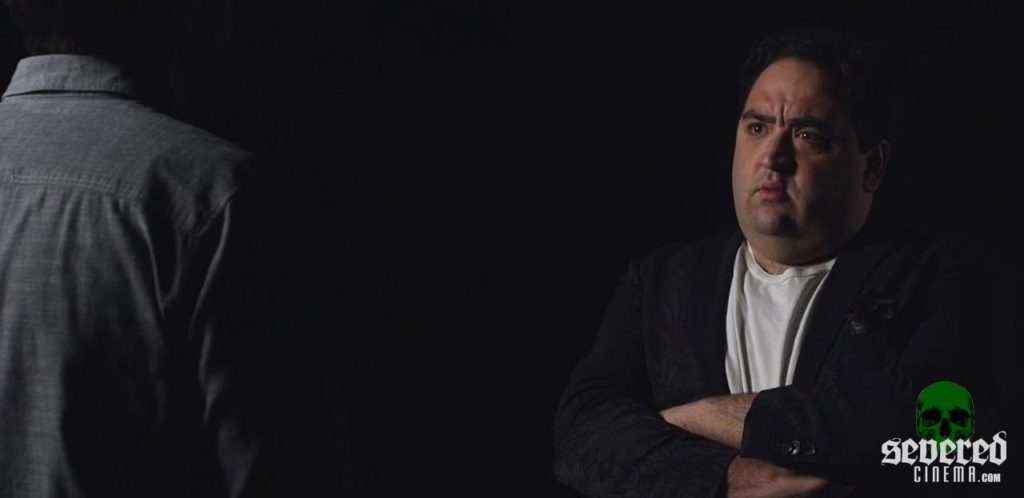
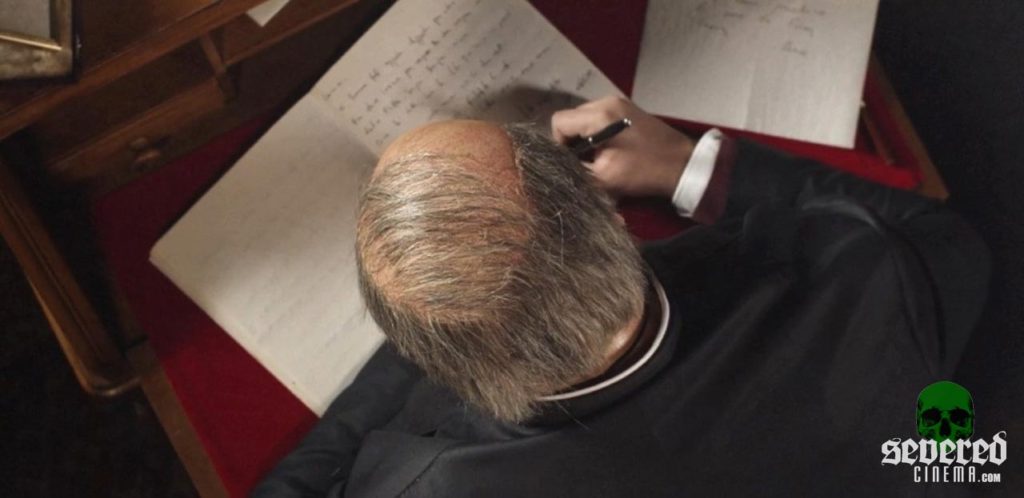
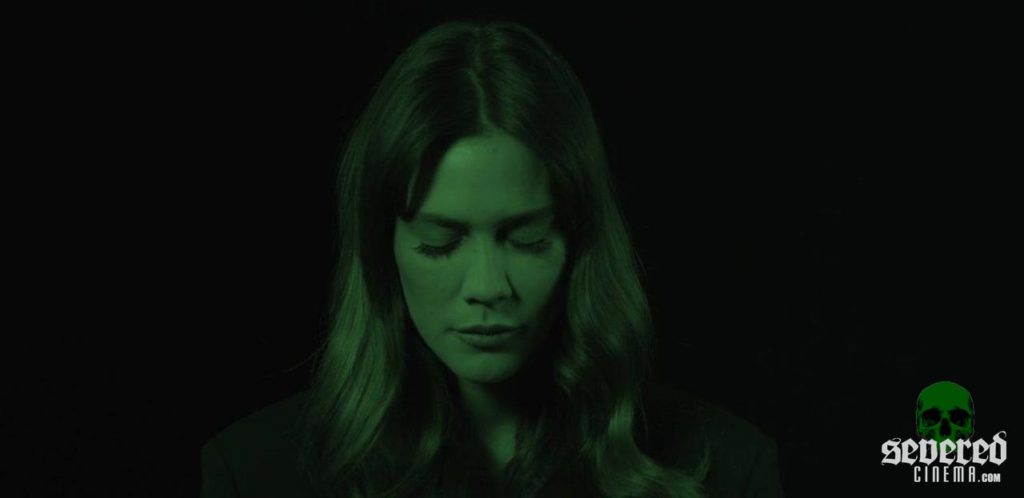
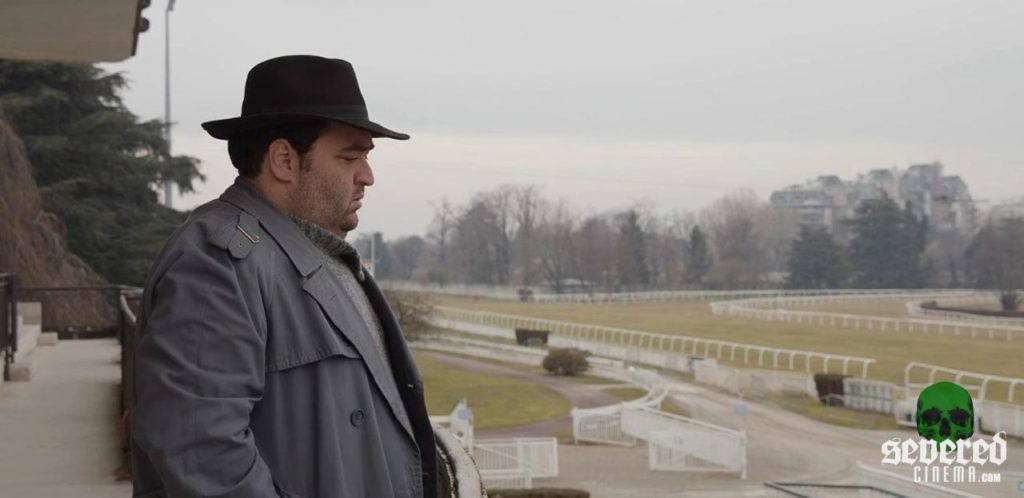
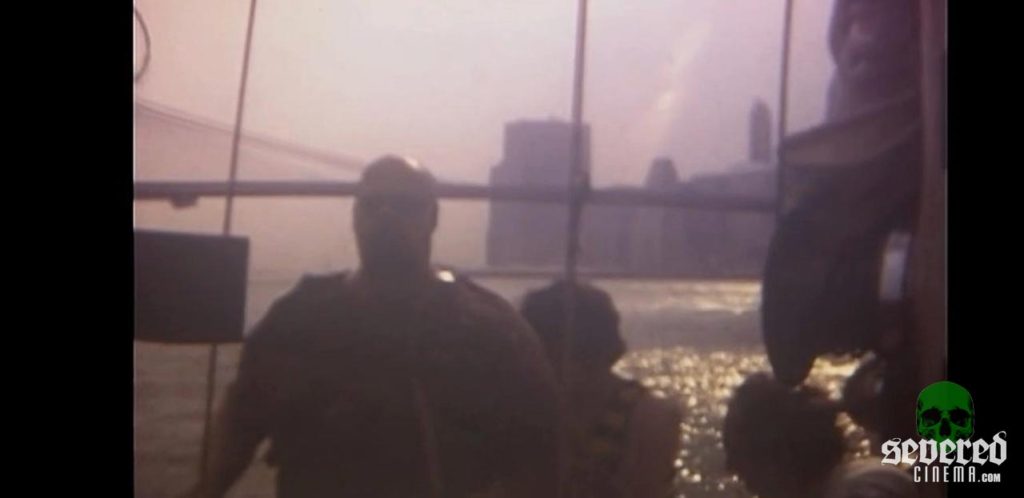
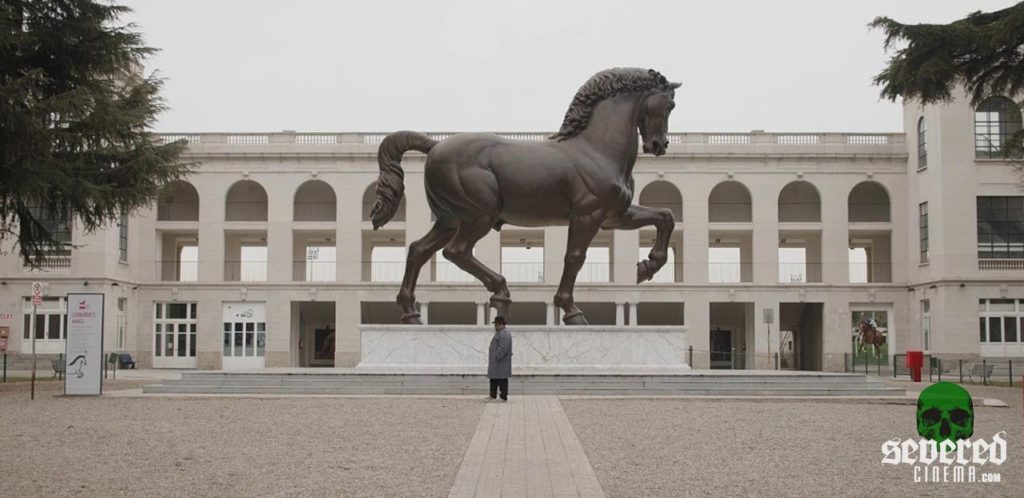
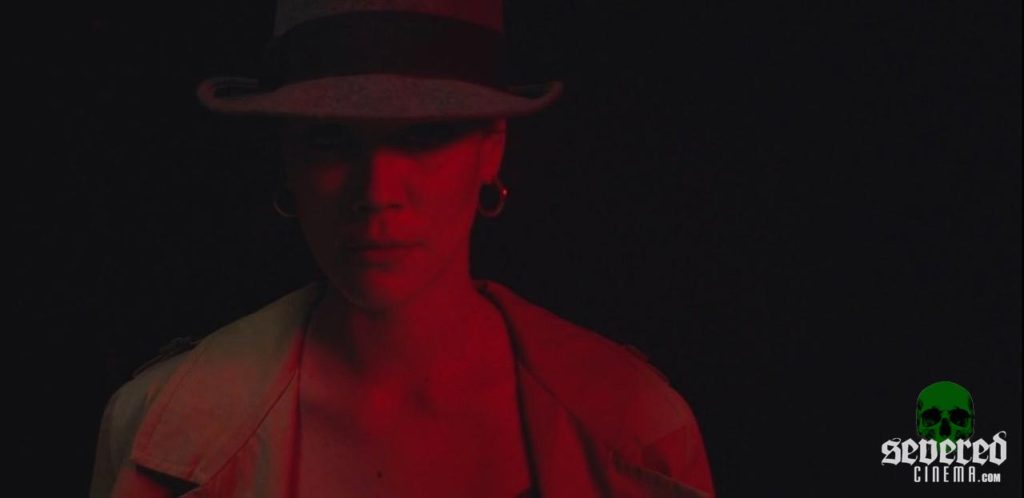
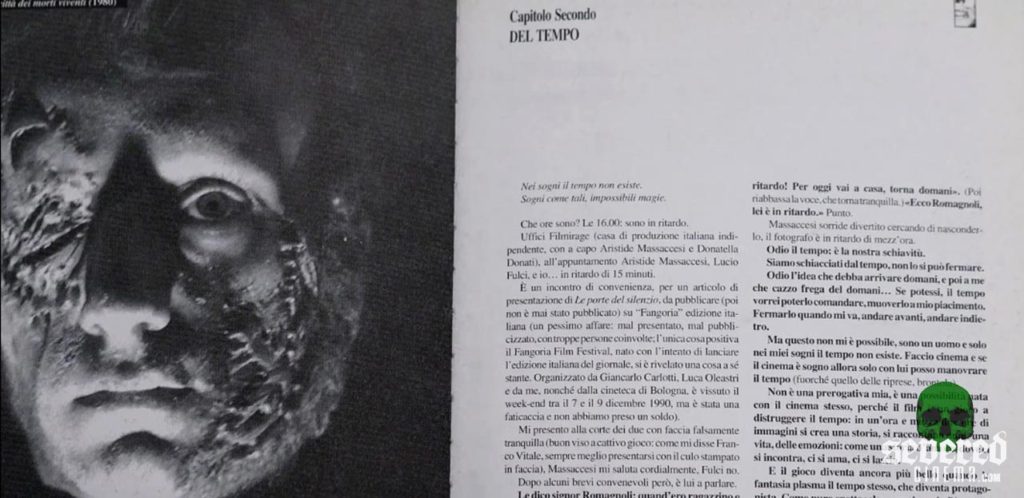
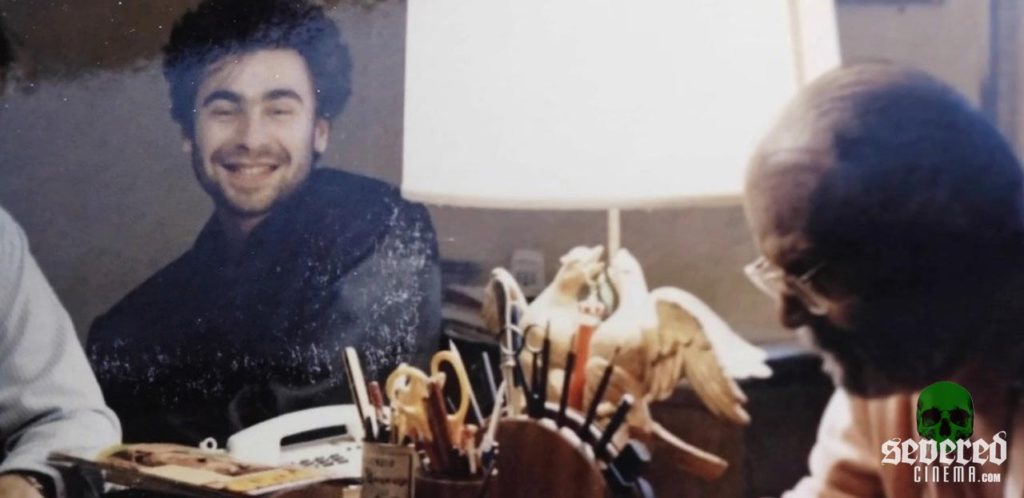
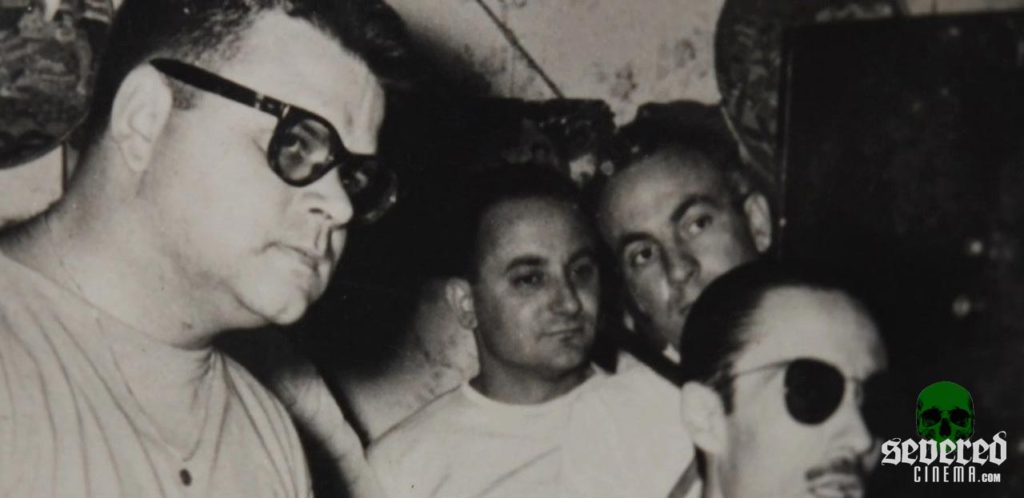
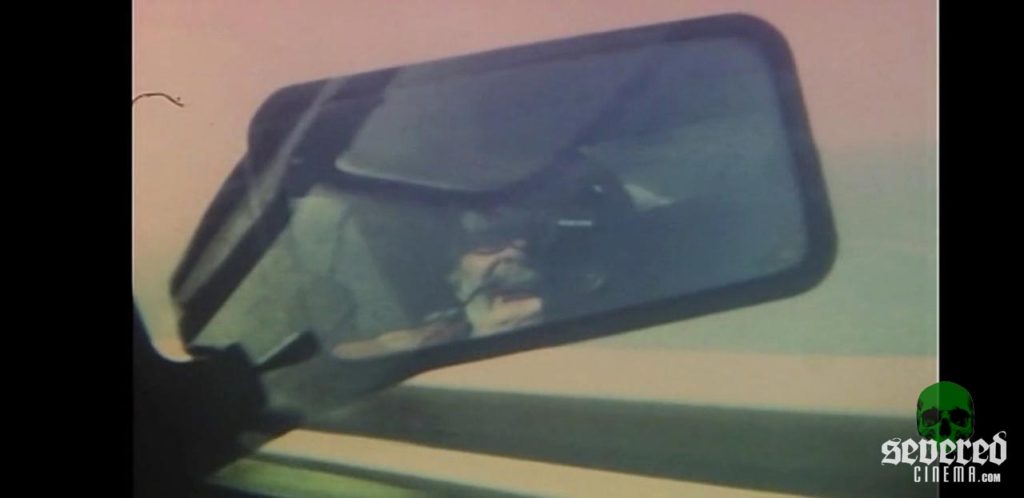
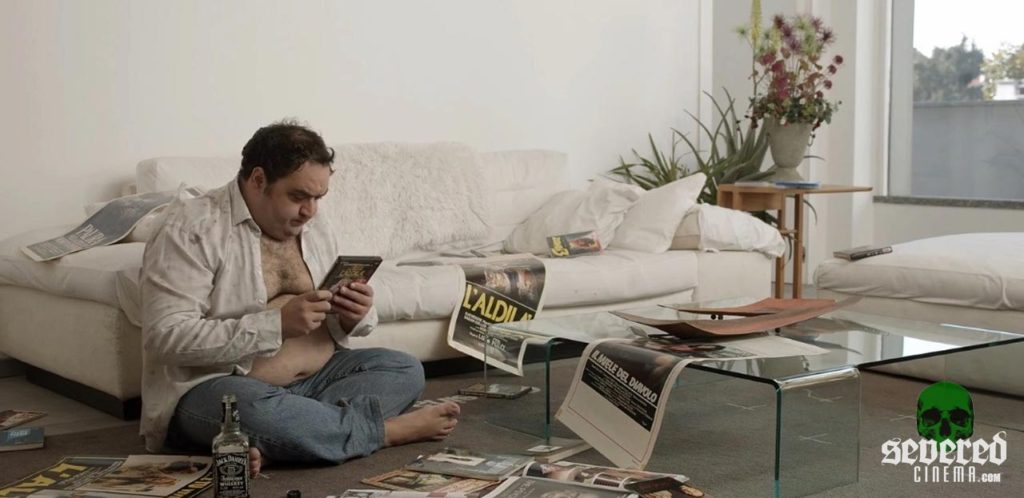
Fulci for Fake
Buy

